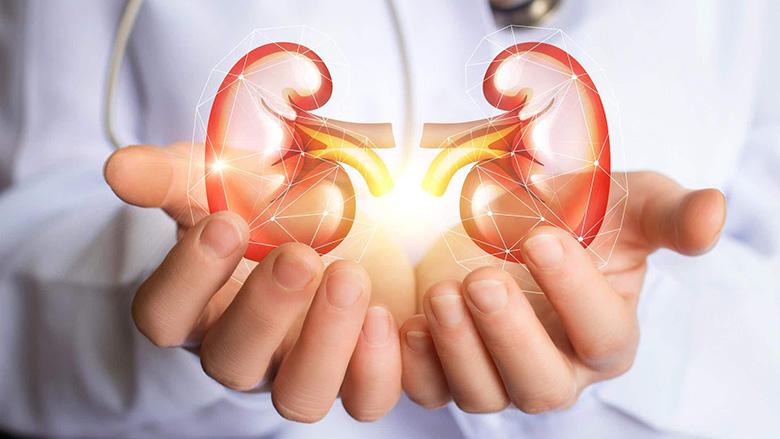- ibm hospital
- 0 Comments
Increasing Urinary Disease in NCR: Symptoms, Effects, and Prevention
Urinary diseases are on the rise in the National Capital Region (NCR), affecting thousands of people every year. Moreover, pollution, unhealthy lifestyles, and poor hydration habits are contributing to this alarming increase. Therefore, it’s crucial to understand the symptoms, potential effects on vital organs like the kidneys and stomach, and the best ways to prevent these diseases In this blog, we will explore the increasing urinary disease in NCR, its symptoms, and how to take preventive measures effectively.

Common Types of Urinary Diseases in India
Urinary diseases affect millions of people in India, and some of the most common types include:
1. Urinary Tract Infection (UTI)
A bacterial infection affecting the urinary system, including the bladder, kidneys, and urethra. Symptoms include frequent urination, burning sensation, and cloudy urine.
2. Kidney Stones
Kidney Stones are small, hard deposits of minerals and salts that form in the kidneys and can cause severe pain during urination. Common causes include lack of hydration and high salt intake.
3. Bladder Infections
A type of UTI that primarily affects the bladder, leading to discomfort, frequent urination, and pelvic pain.
4. Prostate Enlargement (Benign Prostatic Hyperplasia – BPH)
Common in older men, this condition causes difficulty in urination due to an enlarged prostate gland pressing against the bladder.
5. Interstitial Cystitis (Painful Bladder Syndrome)
A chronic bladder condition causing bladder pressure, pain, and frequent urination without an infection.
6. Kidney Infections (Pyelonephritis)
A severe urinary infection that can lead to kidney damage if untreated, often accompanied by fever, back pain, and nausea.
7. Urinary Incontinence
Loss of bladder control, leading to unintentional leakage of urine, often seen in elderly individuals and women after childbirth.
Common Symptoms of Urinary Diseases
“The most common symptoms of urinary diseases include
Frequent Urination – One of the key symptoms of urinary diseases is frequent urination – a constant urge to urinate, even if only small amounts are passed. In addition, a burning sensation while urinating is often a sign of infection in the urinary tract.
Burning Sensation While Urinating – A sign of infection in the urinary tract.
Blood in Urine (Hematuria) – Can be an indicator of kidney stones, infections, or even more severe conditions.
Pain in the Lower Abdomen or Lower Back – Could be related to kidney issues or bladder infections.
Cloudy or Foul-Smelling Urine – Often a sign of bacterial infection.
Fever and Chills – If left untreated, urinary infections can lead to fever and chills, signaling a worsening condition.
Effects of Urinary Diseases on the Body
If ignored, urinary diseases can have severe consequences on the body, affecting multiple organs:
1. Impact on Kidneys
Untreated urinary tract infections (UTIs) can progress into kidney infections, leading to conditions such as pyelonephritis, kidney damage, or even kidney failure in severe cases.
2. Effect on the Stomach & Digestive System
Frequent urinary infections can sometimes lead to digestive issues, including bloating, abdominal discomfort, and pain. Infections can also cause nausea and loss of appetite.
3. General Weakness & Fatigue
Urinary infections can lead to dehydration and loss of essential nutrients, resulting in general body weakness and fatigue.
4. Increased Risk of Kidney Stones
A lack of proper hydration and recurring urinary infections may lead to the formation of kidney stones, which can be extremely painful and require medical intervention.
Best Tips to Control Urinary Diseases
While the increasing urinary disease in NCR is a growing concern, you can take several steps to reduce your risk:
Stay Hydrated – Drinking plenty of water helps flush out toxins and bacteria from the urinary tract.
Maintain Hygiene – Always maintain personal hygiene to prevent infections.
Avoid Holding Urine – Holding urine for long periods can lead to bacterial growth and infections.
Eat a Balanced Diet – A diet rich in fruits, vegetables, and fiber helps maintain a healthy urinary system.
Consult a Specialist Regularly – If you experience frequent urinary issues, seek medical advice without delay.

Best Hospital for Care – IBM Hospital Panipat
If you are experiencing symptoms of urinary diseases, it’s essential to seek expert care. IBM Hospital Panipat is one of the best hospitals for treating urinary diseases with advanced medical technology and experienced urologists. It is also recognized as the best hospital in Panipat for comprehensive urinary and kidney care.
Why Choose IBM Hospital Panipat?
✅ Expert Urologists & Kidney Specialists
✅ State-of-the-art Diagnostic Facilities
✅ Advanced Treatments for UTIs, Kidney Stones, and Urinary Disorders
✅ Patient-Centric Approach & Affordable Care
Note:
With the increasing urinary disease in NCR, it is crucial to stay informed and take preventive measures. Identifying symptoms early and seeking expert medical care at IBM Hospital, the best hospital in Panipat, can help prevent complications and maintain overall health. If you or your loved ones experience urinary issues, consult IBM Hospital Panipat today for the best treatment and care.
Stay Healthy, Stay Safe!

Leave a comment